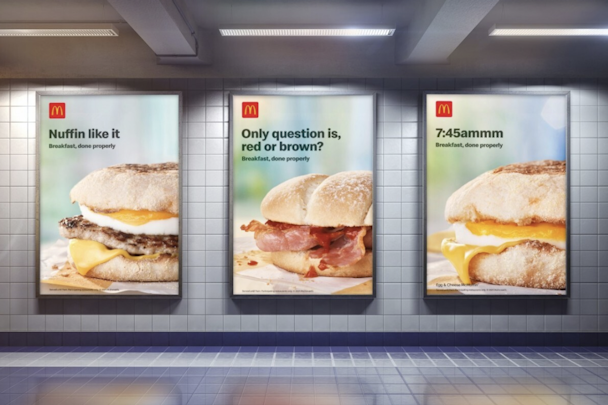It’s time to take a long hard look at the logic behind advertising bans
Gordon Young, the founder of The Drum, asks if ad bans in public spaces are really a good thing.

The best thing about the London Underground used to be the ads. Funny, stimulating and informative, they were a great distraction - with the bonus - that they allowed travelers to avoid eye contact.
However, in 2019, the golden era came to an end. The Mayor of London, Sadiq Khan, who runs the network via TFL, banned any work for high in fat, sugar and salt (HFSS) foods.
His bid to tackle childhood obesity meant that the range of ads declined, and today, the tube offers slim pickings for those seeking creative inspiration.
It was an expensive policy–some estimate it has cost the underground £25m a year in lost revenue.
Advertisement
But has that investment in public health done any good? Nobody knows - no benchmarks were implemented to monitor the policy’s effectiveness.
However, the enthusiasm for ad bans is a global phenomenon. For example, Australia, the UK and New York are all looking at various forms of restrictions on junk food.
Meanwhile, France and the city of Amsterdam have struck a blow for net zero by banning fossil fuel ads. So restrictive is the move in France that supermarkets say they cannot even tell consumers if they have cut fuel prices.
Advertisement
In the UK, the Green Party recently announced a similar policy that would ban advertising for all products and services deemed carbon intensive - airlines, energy, and fashion could be affected. Although unlikely to win power, the Green policy shows how the anti-advertising lobby is building momentum.
Adland has been fighting back. For example, the Advertising Association claims such bans are rarely effective. Commenting on junk food policy, it has called for “well-funded, multi-faceted programs focused on making changes in local communities” rather than “population-wide and non-targeted approaches such as advertising bans.”
Might not the millions TFL has lost through its ad ban achieved more if it had been invested in targeted community outreach?
However, it is particularly difficult to see how cities, or even countries such as France, banning high-carbon advertisers will make a jot of difference in mitigating climate change.
Suggested newsletters for you
The emerging middle classes in India and China do not spend much time on the Amsterdam Metro, and attempts to hit net zero will be futile unless they are won over to the cause.
And, of course, people who depend on fossil fuel-powered products will continue to use them until viable alternatives emerge.
To win this war while keeping their voters' onside, authorities must prioritize supply-side reforms - encouraging industry to create viable green alternatives to meet consumer demand.
It is not easy, which is why advertising regulation seems popular. It creates the illusion of getting things done, and as far as the public is concerned, it appears cost-free.
Of course, that is far from the truth. On a practical level, it prevents advertising from giving the public the information they need to make informed choices - like the price of fuel. It distorts markets, reduces consumer choice, and stunts innovation, making it harder for new players to cut through.
But it also takes millions out of the media industry - money partly used to fund journalism and the content people need to understand the world.
On an emotional level, it also means a less joyful public realm - metro cars, for example, devoid of the colorful creative that will distract you. Maybe that’s why TFL feels the need to run ads in their place warning that staring can be a form of assault.

